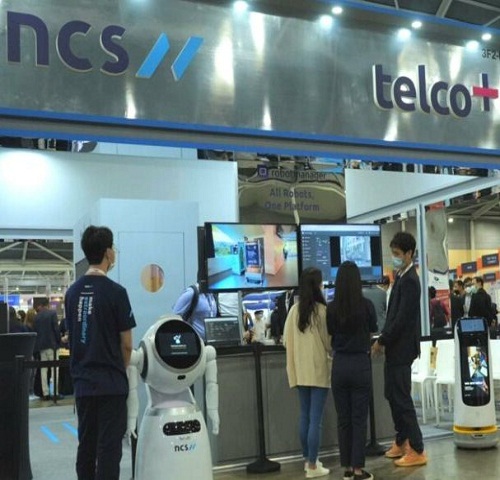With 5G being a priority for almost all telcos today, one of the biggest challenges they face is upgrading their systems in order to support the new requirements for 5G. This includes transforming their business operations to capture value from data and driving applications of 5G.
Compared to businesses that can expand their digital transformation based on their business requirements, it’s a different scenario for telco players. To understand more about how telco companies can digitally transform to support 5G while experiencing some cost savings, Tech Wire Asia caught up with Sami Luukkonen, Managing Partner of NCS Telco+, a joint initiative between Singtel and NCS to help telecom companies transform digitally.
This includes enabling telcos to improve on operational efficiency and leverage insights-driven data to deliver enhanced customer experience. With the combined capabilities of Singtel’s 5G network and NCS’ expertise in digital and technology services, Telco+ also developed a full stack of 5G-enabled solutions to help enterprises capitalize on the applications of 5G.
According to Luukkonen, telcos need to be digital telcos today. As the journey for a telco digital company is long and difficult, NCS Telco+ is hoping to speed up the journey for them. For example, it takes about 18 months for a company to normally launch a new service, this includes the time needed for testing, regulatory compliance if needed, and such. By the time the service is launched, there is no chance of it failing.
“We are now looking at that how do we take the 18 months to three months. We need to come up with services faster. And one of the key things we do is decoupling the architecture. The architecture that the telcos have is similar to how the banks use it, which means it’s been developing over decades. It’s a monolithic stack. So, what we are trying to do here is that we are chopping off bit by bit functionality out of this and building a module or decoupled architecture,” commented Luukkonen.
He explained that the functionality of existing architecture can’t be shut down as it is still relied upon. Hence, the transformation has to happen simultaneously. This is why by decoupling the architecture, it enables them to shorten the launch time for new workloads and such.
“The architecture is something we are doing with both Singtel and AIS. Compared to Docomo, we are not doing a full-stack change but taking a modular approach. So, when we are architecting it to be modular because we know we are going to take it and adapt it to AI,” added Luukkonen.
At the same time, Luukkonen explained that IoT data is essential for telcos moving forward. For telcos, its DNA comes from the network, which is the customer interaction it gets and builds upon.
Regulating telco’s digital transformation
“If you think about the Metaverse, whereby there are avatars over there, somebody needs to know how to authenticate them that they are who they claim to be, especially when it comes to buying and selling products and payments using crypto. For example, if I buy fake shoes, somebody needs to go and penalize me if that’s right. And it’s not going to be Facebook in California that’s gonna come after me. It’s Singapore if I am doing it from there. That’s why they need to find a way to authenticate what I’m doing there. And we’ve got the best position to do that because as telcos, we control the connectivity,”
He added that it is about utilizing the information when it comes to regulators. As sovereign states have regulatory jurisdiction on what they need to be able to see, the telcos kind of has a very important position. At the same time, the regulators also help strengthen the telco position and protect them against multinationals coming and bulldozing it.
“So you need to somehow protect your national interests. You need to have a national player in the middle of all of these things. And that’s the regulator discussions I would really want to see. But unfortunately, regulators are often seen as a nuisance. So let’s hope that changes. Singapore is very different than many other countries. The regulators in Singapore come to us and see how we can help each other,” he added.
Huge opportunity for 5G telcos in Thailand
With that said, Luukkonen believes the regulators in Thailand are also supportive of the telco network. This is why NCS now supports the digitalization journey of AIS and the pursuit of joint projects in 5G and IoT transformation, cloud, and cybersecurity, enabling enterprises in Thailand to benefit from the combined strengths of AIS market leadership and the digital services capabilities of NCS.
As a digital telco, AIS customers will experience a marked improvement in the speed and accuracy of key processes including, the onboarding of new customers, ensuring seamless operations and issue resolution, as well as offering greater convenience with broader self-service options. The partnership will enhance AIS employee competencies via talent development and training programs, and drive AIS’s internal capabilities as a cognitive telco.
Luukkonen also highlighted that while they are assisting AIS in Thailand, the market is still relatively immature. Hence, there will be lots of opportunities to jump over some of the development cycles. Simply put, Luukkonen believes that Thailand has a great opportunity, judging by its growth rate. Apart from 5G telcos in Thailand and Singapore, NCS is also operating in Indonesia with Telkomsel as well as in the Philippines, China, Hong Kong, and the Middle East.
“Telcos are daring to start the journey. They realize they’re not going to survive unless they transform. The timing is right and the fact is there are so many investments in the backend, so you can’t write it off. Telco won’t be able to replace everything immediately but they adding new software products to new stacks immediately. Timing is everything and they need to improve as fast as they can,” concluded Luukkonen.
Source:Techwireasia










